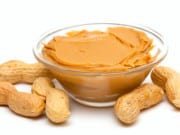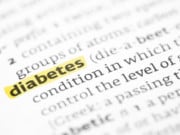Poor soda, its fall from grace has been sudden and dramatic, to say the least. As recently as 10-15 years ago, soda was drunk by almost everyone, from teenagers to housewives to the elderly. But then we all became aware of the obesity epidemic and the exponentially increasing rates of type 2 diabetes. Many foods became harbingers of doom, gloom, poor blood sugar control, and high cholesterol. Soda pops of all kinds, especially non-diet versions, took perhaps the biggest hit. We always knew they weren’t good for us, but I don’t think many of us realized how incredibly bad they are for one’s health. Sodas are basically pure sugar with absolutely no nutritional value whatsoever. Their high sugar content along with their acidity means they are deadly to oral and dental health as well. They are a type of food that has only been around in human evolutionary history for a blink of an eye, and almost all foods of this nature are bound to be detrimental to our health. What makes them so irresistible is a combination of delicious and refreshing taste, as well as the fact they often contain the very potent psychoactive combination of caffeine and sugar, sure to improve one’s mood at least for the immediate future.
With all that said, sodas are still extremely popular worldwide, and a recent Gallup poll found that about half of all Americans still drink at least one soda per day. In Japan, Pepsi is seeking to change the villainous perception of soda and has recently released a product called “Pepsi Special.” What makes it so special? Well, it claims to block fat because the new soda contains dextrin, a type of dietary fiber. Pepsi Special is also low in calories and retails in Japan for the equivalent of a little less than $2. Pepsi Special certainly isn’t the first soda to be labeled as “healthy” by its manufacturer, other precedents do exist. The Japanese beverage company Kirin recently introduced a “weight-loss” sugar-free soda that because of its 200mg of caffeine (more than a large Rockstar or Red Bull energy drink), was purported to burn fat and increase metabolism. As shaky as these claims are, the Kirin beverage has sold well in Japan.
So is this new Pepsi Special really all it’s cracked up to be? Can a soda really help “block fat” and/or lead to weight loss? Well, not really. But kind of, because the claims aren’t based on nothing. Soluble fibers like dextrin (also found in fiber supplements) are very beneficial to human health. They slow down digestion, leading to better controlled blood sugar and feeling full for longer. They also do bind fats and cholesterol in the gut which leads to the excretion of these nutrients instead of absorption. One study on dextrin, conducted in 2006, found that rats that ate dextrin with a fatty meal absorbed less of that fat than did rats that ate only the fatty meal without dextrin. So for all the rats reading this article, first of all, congratulations on having the mental prowess to read English, and second of all, you can be reasonably sure that dextrin may help you fight fat. But for the human audience, it is important to keep in mind that rats and humans are different creatures, and what happens in a rat’s body may not happen in a human body. Dextrin has other health benefits too, such as promoting the growth of healthy bacteria in your gut, promoting production of short chain fatty acids which help fight tumors, as well as the usual, *ahem* “normal” and “regular” benefits of all fibers.
As of now, Pepsi Special is only available in Japan but it could make its way across the Pacific in the future. Americans definitely love soda and we definitely love weight-loss too, and to be able to get both things in one bottle would be tremendously attractive to the American consumer. One problem might be the FDA, which in America probably would not allow the claim of “fat blocker” because the connection would not be well enough supported by scientific evidence. But even if Pepsi Special does become available in America, don’t be so tempted to run to the store and buy 12 cases. Sure, the soda does contain dextrin, but you know what else does? Whole grains, fruits, and vegetables, the kinds of foods you should be eating regularly anyway. Just like you could get a lot of iron and potassium from a nice chicken-fried steak with mashed potatoes, you could also get those same nutrients from a bowl of oatmeal and save yourself about 2,000 calories and a bunch of saturated fat. Perhaps it comes down to breaking our addiction to soda, which is no easy feat to be sure. But if a claimed health drink soda does become available in America, keep in mind the wise words of your mother when she said, “If it seems too good to be true, then it probably is.” Dextrin itself may be healthy, but getting the nutrient from real foods that are loaded with many other healthy nutrients will always be better than turning to soda.
Article Courtesy: Andrew Steingrube







Let Us Know What You Think